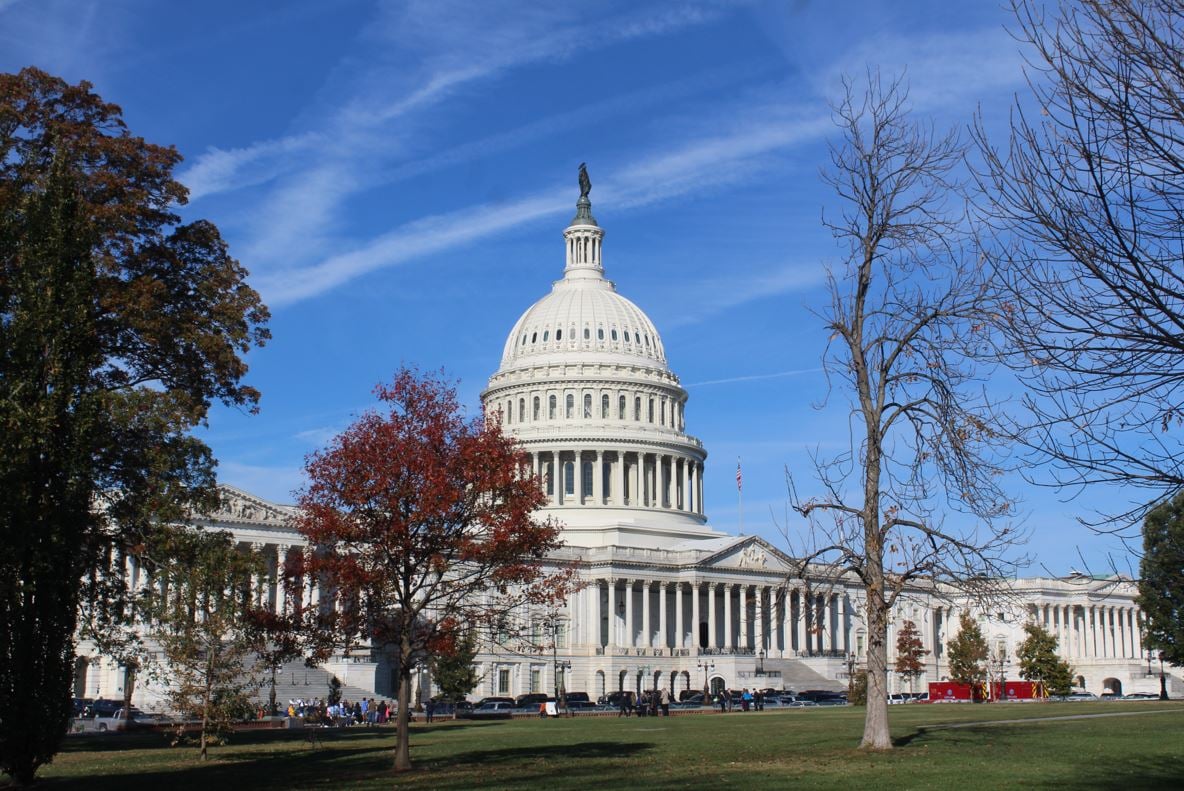With Strong Bipartisan Support, House Votes to Avert Shutdown

WASHINGTON — The House on Tuesday passed a stopgap spending bill that will avert a government shutdown before the holidays, handing House Speaker Mike Johnson, R-La., a big bipartisan win in the first true test of his leadership.
In the end, after days of ruminations over Johnson’s two-step approach to resolving the potential funding crisis, the vote was 336-95, easily clearing the two-thirds threshold necessary for passage.
A total 209 Democrats and 127 Republicans voted in favor of the bill, while 93 Republicans and two Democrats opposed it.
Announced just this past Saturday, Johnson’s bill extends government funding through Jan. 19 for the Departments of Agriculture, Transportation, Veterans Affairs, Energy and several other federal agencies.
At the same time, funding for the Labor and Justice Departments will now be extended through Feb. 2 so that the conference can work through marked differences on those two spending plans.
That timing would allow lawmakers more time to try to finish off the individual annual spending bills, as many conservative Republicans have demanded.
The bill also extends the authorization of programs and authorities in the farm bill until Sept. 30, 2024, the end of the fiscal year — effectively extending all programs included in the bill that passed in 2018.
It does not include funding for either Israel or Ukraine.
“We are not going to have a massive omnibus spending bill right before Christmas,” Johnson said after the vote in the House. “That is a gift to the American people. Because that is no way to legislate. It is not good stewardship.”
Explaining Democrats’ support for the measure, Rep. Annie Kuster, D-N.H., chair of the New Democrat Coalition, acknowledged that many in the conference believe the resolution was neither “perfect” nor a “permanent solution.”
“The GOP ‘laddered’ approach to funding the government introduces more risk into an already complicated process and fails to include the president’s supplemental funding request to support our allies in Israel and Ukraine, deliver critical humanitarian aid to innocent civilians in Gaza, strengthen our national security at home and abroad, and address critical domestic priorities,” she said.
“However, this bill will keep the government open at a time when millions of workers across the country are in dire need of certainty and stability,” Kuster continued. “The CR maintains current funding levels, extends vital farm bill programs through next year and contains no partisan poison pill amendments.
“Despite its flaws, voting for this legislation is the responsible thing to do to keep the government open and avoid the devastating impacts a government shutdown would have on the U.S. economy and hardworking families,” she said.
The resolution now goes to the Senate, where it has already garnered the support of both Senate Majority Leader Chuck Schumer, D-N.Y., and Senate Republican Leader Mitch McConnell, R-Ky.
“We would like to do it as soon as possible,” Schumer told reporters shortly after the votes in the House were counted.
“Both [Leader] McConnell and I want to avoid a shutdown, so getting this done obviously before Friday at midnight,” he continued.
Though he acknowledged the Senate has “lots of arcane rules” that could slow the process, he said he and the Republican leader had already agreed their mutual priority is “to get it done as quickly as possible.”
While an immediate crisis appears to have been diverted, federal budget hawks reminded Congress not to take a victory lap jsut yet.
Among them was Maya MacGuineas, president of the Committee for a Responsible Federal Budget, who said in a statement Tuesday night that with the bipartisan passage of the House’s continuing resolution, “it looks like the government will remain open beyond November 17 – which is a good thing.
“However, the problem remains that Congress has failed to act on passing appropriations in a timely manner, thereby failing at one of its most basic responsibilities,” she said.
MacGuineas noted that the government is now two months into the fiscal year and not a single appropriations bill has been enacted into law.
“This is no way to run a country,” she said.
“Spending caps were set in the Fiscal Responsibility Act, and we should stick to them,” MacGuineas continued. “Lawmakers are attempting end runs around the caps, with the Senate trying to spend more and the House trying to spend less. How about instead they stick to the deal?
“We cannot keep governing by self-imposed crises … From the looming insolvency of our trust funds to interest on the debt being the fastest growing part of the federal budget, we need to start addressing the drivers of our debt and deficit. We need to get past this funding crisis so we can start looking at more than just the next step in front of us.” she said.
Dan can be reached at [email protected] and @DanMcCue
























